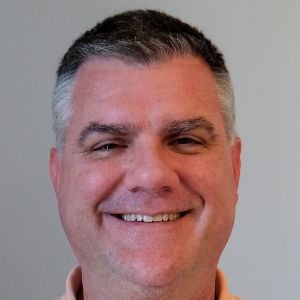Advertisement
110 Studio Not Required: Recording High-Quality Video From Your Home or Office
10:45 AM - 11:45 AM Wednesday, October 20
Video had already transitioned from being a high-cost luxury to an affordable opportunity before COVID-19 existed. However, the pandemic transitioned video even further, making it a must-have tool that educators around the world were forced to learn on the fly while developing content for their newly online courses. It quickly became apparent that creating studio-quality video from the home or office that achieves your learning goals can be a struggle. Additionally, researching the myriad options for microphones, cameras, equipment, and setup in an effort to increase the production quality of your videos can be overwhelming; and that's not even taking into consideration the development of your content! That's where the time-tested and proven tips we've cultivated over the production of thousands of educational videos and live class sessions—both before and during COVID-19—can help you achieve exceptional, studio-quality results.
In this session, you'll learn how to efficiently focus your resources, time, and effort on specific video production considerations that will result in budget-friendly, studio-quality videos without needing an actual studio. For content development, you'll discover how planning for the recording of your videos as you work through your concepts and ideas will generate more opportunities for maximizing viewer engagement when you're in front of the camera. You'll also learn how key choices in content formatting (slides or no slides), interaction (markup or no markup), and delivery (scripted or unscripted) can have significant impact on all aspects of the video recording process. For your recording setup, you'll learn how to maximize your budget by first focusing your resources on increasing audio and video quality and then using any remaining funds for strategic additions and upgrades. You'll also find out how properly implemented rehearsal and preparation can minimize the time needed for recording your videos, which can significantly shorten the timeline between identifying your video needs and finishing the completed product. Finally, you'll hear tips about what to wear (or not), what to eat and drink (or not) before recording, and how to maintain eye contact with the camera. You'll leave this session with a toolset of proven, practical, and actionable tips that are easy to implement and sure to have an immediate, positive impact on future videos you record from your home or office.
In this session, you will learn:
- How to develop content with an eye toward video production in an effort to maximize your opportunities for viewer engagement
- How to evaluate key choices for content formatting (slides or no slides), interaction (markup or no markup), and delivery (scripted or unscripted) in order to increase flexibility while minimizing work
- Where to invest budget resources for equipment purchases to have the highest return on investment for increasing the quality of your finished videos
- How to properly rehearse and prepare your content for efficient delivery during recording in order to minimize the overall video production timeline
- The do's and don'ts of dress code, food and drinks, and maintaining eye contact with the camera
Technology discussed in this session:
Audio recording devices such as headset microphones, standalone microphones, and lavalier microphones. Video recording devices such as webcams and standalone video cameras. Presentation software such as PowerPoint, Keynote, and Google Slides. Screen capture software such as Captivate, Zoom, etc. Video platforms such as YouTube, Kaltura, etc. Interactive tablets such as Wacom, iPad, etc.

Fred Telegdy
Senior Instructional Designer
University of Virginia Darden School of Business
Fred Telegdy is a senior instructional designer for the University of Virginia's Darden School of Business. With more than 20 years of experience working as a multimedia developer and instructional designer, he collaborates with world-renowned faculty and staff to develop asynchronous and synchronous online learning experiences for the school's degree programs, executive courses, and public offerings. Fred holds a master of education in instructional technology from the University of Virginia and a bachelor of industrial design from Auburn University.
